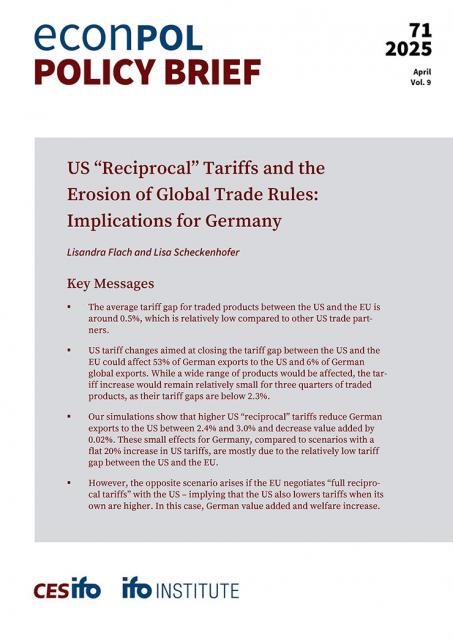News Archive

EEAG Report on the European Economy 2020: Fair Taxation in a Mobile World
|
Special Publications
| News
In the 1930s, countries fought destructive trade conflicts – now we have a similar situation, but the conflicts are taking place in the tax system. These conflicts arise out of the twin impacts of globalization and digitalization. Once upon a time, there was an implicit understanding of fairness in taxation, meaning how countries tax within their borders and how the tax burden is distributed. More specifically, companies and individuals were taxed based on their residence and consumption in the destination country.

Markups in a Dual Labor Market: The Case of the Netherlands
|
Working Paper
| News
An expanding body of research finds a sharp increase in the average markups in the US and Europe, driven by firms located at the top of the markup distribution; other studies find that markups in the US and Europe have increased only moderately or even remained stable. These differing results have triggered a discussion on methodology, a key issue being the choice of the free input in the production function approach.

Air Pollution & Migration: Exploiting a Natural Experiment from the Czech Republic
|
Working Paper
| News
This paper from Štěpán Mikula (Masaryk University) and Mariola Pytliková (EconPol Europe, CERGE-EI) examines causal effects of air pollution on migration by exploiting a unique natural experiment of desulfurization of power plants in the region of North Bohemia in the Czech Republic after the fall of communism in 1989.

How Important are Local Knowledge Spillovers of Public R&D and What Drives Them?
|
Working Paper
| News
There is a clear consensus that stimulating firm R&D is welfare-increasing due to positive externalities and uncertainty, but the question about the most efficient way to do so is still open to debate: this paper from Leonie Koch (Ludwig Maximilian University of Munich) and Martin Simmler (EconPol Europe, Oxford University Centre for Business Taxation) analyzes the magnitude of local knowledge spillovers of public R&D in Germany and its determinants using patent application data.

Taxation of Digital Platforms
|
Working Paper
| News
An analysis of the proposals and international implications around taxing digital platforms such as Facebook and Google concludes that the European Commission’s proposed digital services tax (DST) addresses the concerns shared by policy makers: but, says author Marko Köthenbürger (EconPol Europe, ETH Zurich), there should be a more stringent definition of the digital platforms that are subjected to such a tax.
